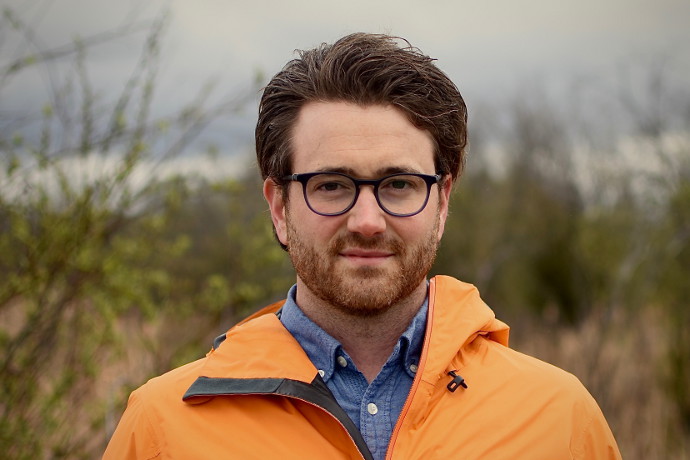
This spring, assistant professor Cameron Jefferies and five second-year students will visit Vancouver Island, British Columbia, as part of a new course offered by the University of Alberta Faculty of Law.
The Oceans Law and Policy course is an intensive two-week course that will introduce students to the fundamentals of the law of the sea.
It's just the latest offering in a faculty-wide emphasis on experiential learning that also includes two first-of-their-kind courses for Canadian law schools: the Aboriginal Justice Externship on Gladue Sentencing Principles that is designed to provide law students with a deeper understanding of the legal, social and cultural contexts informing the 1999 Gladue decision; and the Office of the JAG Internship where students intern at the legal branch of the Canadian Forces Base in Edmonton.
During the course, students will divide their time between Edmonton and Bamfield, B.C.
"The ocean, and water generally, is quite inspiring because it's foreign. It's a unique environment that's challenging for humans to survive in, difficult to appreciate and fascinating to research; I think that inspires imagination, creativity and a desire to explore," said Jefferies.
During the in-class portion of the course in Edmonton, students will look at the major international agreements that deal with oceans law (like the the seminal United National Convention on the Law of the Sea) and how Canada is working with issues that are relevant to 21st century oceans governance.
Some of those issues include: the conservation of living marine resources and endangered species conservation; Arctic governance and Arctic shipping; submarine cables and the transmission of information; and, navigation and shipping concerns for the movement of goods and services.
The second portion of the class will take place at the Bamfield Marine Sciences Centre, Canada's premiere marine biology research station. There, the students will take part in activities that marry the law and the biological components of the ocean, like visiting a marine protected area, viewing species at risk and learning some basics about marine sciences.
Heather Stock, in her second year, enrolled in the course to explore the different jurisdictional issues involved with the ocean, including resource harvesting and species protection.
"Law needs to be explored out in the real world where we can see how the law and regulations affect the daily existence of people and nature," she said.
Jefferies is an assistant professor and Borden Ladner Gervais fellow. Born and raised in Edmonton, he's had a lifelong passion for the ocean that translated to his career in academia; in fact, his doctoral dissertation assessed and proposed a new approach to international marine mammal conservation.
For Jefferies, the course is a unique opportunity to both highlight the importance of preserving, protecting and managing the ocean and to recognize prevalent water issues, such as the importance of not treating water - fresh or salty - as a unbounded resource.
"Things are happening so fast and our oceans are not bountiful and endless like we once thought," he said, adding that society is at a breaking point to change its approach to marine conservation to avoid "catastrophic consequences."
Fisheries collapse, ocean acidification, a change in ocean circulation patterns and oceans with more plastic than fish are just some calamities Jefferies said may be commonplace by 2050 if we fail to adapt the current approach to stewarding oceans, which cover about 71 per cent of the earth's surface.
"Hopefully if we turn our attention to conservation efforts and realize that our activities and our choices - even in landlocked Alberta - impact the oceans, then we can turn our attention to reversing these troubling trends," he said.